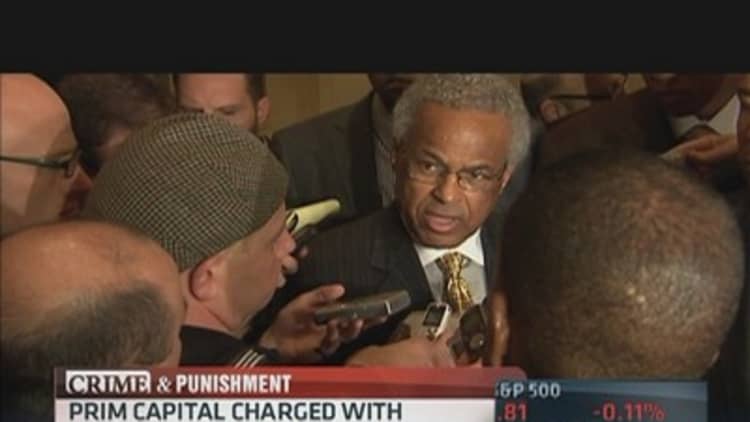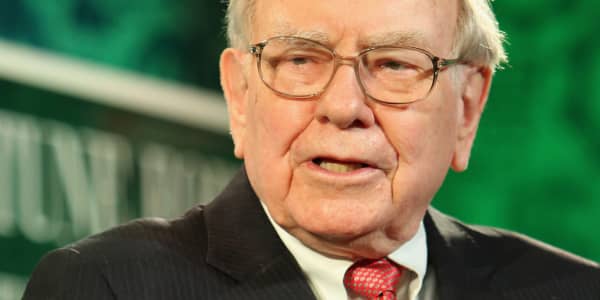Twitter employees aren't the only young Americans facing a "sudden wealth" challenge.
In fact, Silicon Valley's cherubic-cheeked elite haven't been around nearly as long as another set of Americans who can be described as the young and financially restless: professional athletes.
The problem that pro athletes face highlights a basic financial planning issue: They are young, and many of them don't know much, if anything, about finance.
Doug Spencer, resident financial planner at Financial Finesse, said that when he worked with the military years ago, he saw a similar problem: 18- to 24-year old young men who made a significant amount of money from deployments and who were single and had no dependents.
"It was smaller scale, but still an awful lot of cash for a 19- or 20-year-old to handle," said Spencer, who works with the National Football League Players Association on an online financial education program for players and their families.
Athletes stand out because of their sudden exposure to a great deal of wealth. Philadelphia 76er rookie phenom Michael Carter-Williams has taken an extreme approach to solving that "good" problem.
The 22-year-old guard, who so far this season has put up the best NBA rookie numbers since Allen Iverson, is taking a pass on his guaranteed $4.5 million, two-year contract—for now. The millions will be going into a trust fund set up by his family, and he can't tap it for at least three years, The Philadelphia Inquirer reported this week. Until then, he'll live off endorsement deals with Nike and trading card company Panini America.
(Read more: Money lessons for kids)
Private investments coupled with real estate, except a home, and spending, is the reason athletes, like any people, go broke.Ed ButowskyManaging partner, Chapwood Investments
Sports pros don't have the best reputation as money managers. If they aren't their own worst enemy—buying up the latest and biggest sports cars and SUVs and amassing bar bills bigger than some people's monthly salaries—they are often preyed upon by shady financial hucksters and hangers-on in the entourage that forms around millions of dollars.
One and done
Like many other NBA players, Carter-Williams left college after a stellar freshman year. "They are most at risk simply due to the age," Spencer said. "It's one of the rare cases where the age issue is combined with the sudden wealth issue in one person."
Carter-Williams' agent, Jeff Schwartz, said his Excel Sports Management firm starts talking to clients about financial planning and post-career preparation from day one. "I am really proud of Michael, who is not only making a sound financial decision for himself, but is also setting a great example," Schwartz said by email.
(Read more: Good luck selling mutual funds to Twitter employees)
Trevor Johnson, senior vice president of RBC Wealth Management's Bryce Hill Investment Group, said when he saw the Carter-Williams headline this week, he thought, "the point is finally starting to get across to athletes and their families. Utilizing instruments like that can definitely help protect the player's assets," said Johnson, who works primarily with NHL players.
The idea of locking up some money early in a player's career is not uncommon, though it is rare to lock up an entire contract value, said Ed Butowsky, managing partner of Chapwood Investments and an expert on athletes and investing.
It's not just the age and sudden wealth factors that place pro athletes at financial risk, but an element of their compensation that separate them from the general public: Everyone knows exactly how much they are making.
"Contracts are highly advertised excitement for cities and teams. You can argue in some situations that protecting the money is even more important than investing it," Johnson said. "When you have millions it's a bull's-eye on your back. Long lost friends as well as unsolicited offers arrive, and four or five years later the player has nothing."
(Read more: Helping heirs cope with sudden wealth)

One advantage Carter-Williams had in forming the trust that is not available to all young athletes is lucrative endorsement deals. Johnson said for most young NHL players, in contrast to a multimillion dollar contract, they are shuttling between the AHL and NHL and their income fluctuates as a result. "They need to get through the entry-level banking and saving," he said.
Butowsky said locking up the entire value of a contract is not realistic for most young pros, even those with endorsement deals, which often include many contingencies that make them worth much less than meets the eye.
Lifestyle choices are more important. "These guys don't need a lot of money to live on. During the season their meals are paid for, and they need to get an apartment, so if you are spending $5,000 a month you can probably do it" with limited endorsements, Butowsky said. "Everyone needs to spend less money, including my wife," he said.
(Read more: See it here: Kobe Bryant rolls out new hoops shoe)
Spencer said athletes should save at least half their pay and treat the other half like any other budget, with 25 percent devoted to housing. (In the case of the NFL, the problem for athletes is acute, since they receive 17 game checks each season, leaving them technically without income for much of the year.)
"Athletes have to have a budget or allowance for every paycheck, and the rest needs to be put aside," Spencer said. "If they can't keep themselves from spending, then maybe you have to consider a more extreme plan."
Johnson's group has worked with players who structure trusts, though he said instead of a term trust, many athletes use revocable trusts, in which there is a trustee who oversees the assets and must approve player withdrawals. "In the right situations, trusts work," he said. "They protect the athletes and create a barrier of entry for solicitations."
Life after work
Spencer said it would be a mistake to think of pro athletes as being inherently bad with money. In fact, he has worked with athletes who made successful investments from a young age, especially businesses their families had already found success in.
The Philadelphia Inquirer story noted that Carter-Williams' maternal grandfather was a horseman, who at age 30 bought 14 acres and built a barn in Hamilton, Mass., in 1959 and "never took a day off in his life." So maybe a portion of Carter-Williams' locked-up millions will ultimately travel to the country lane where his grandfather's work ethic laid the foundation for his own success, working in a different kind of lane.
Butowsky worried, though, that the focus on Carter-Williams' decision to lock the money up obscures the larger, more important point for athletes as long-term investors, especially since the typical NBA career means retirement by 27. (Only 27 percent of NBA players are 30 years old or older, according to Findthedata.org.)
"The career window is so limited with these athletes," Johnson said. "Understanding how to protect their assets early on is key. ... That gives them the ability to focus on putting the puck in the net, or making an interception or a 3 at the buzzer."
"Lots of athletes have become much more conservative with their investments and that's good, but the second step is what has to happen, and that's education, and there is not one major professional sports league doing a great job in this area," Butowsky said, though he did note that the NBA has a representative on each team's staff who helps players manage personal life issues, including finances.
Butowsky said in a three-hour workshop an athlete can learn everything they need to avoid going broke, and No. 1 on the list is not putting any money into private investments until they have saved at least $3 million after tax, and even then, devoting only 5 percent to private investments spread across five distinct projects.
"Only one out of every 30 private investments works out," Butoswky said. "Private investments coupled with real estate, except a home, and spending, is the reason athletes, like any people, go broke. It's not public securities," Butowsky said. "You have to educate athletes on how not to make mistakes."
So locking the money up is a tight D, but far from a full game plan.
—By Eric Rosenbaum, CNBC.com





